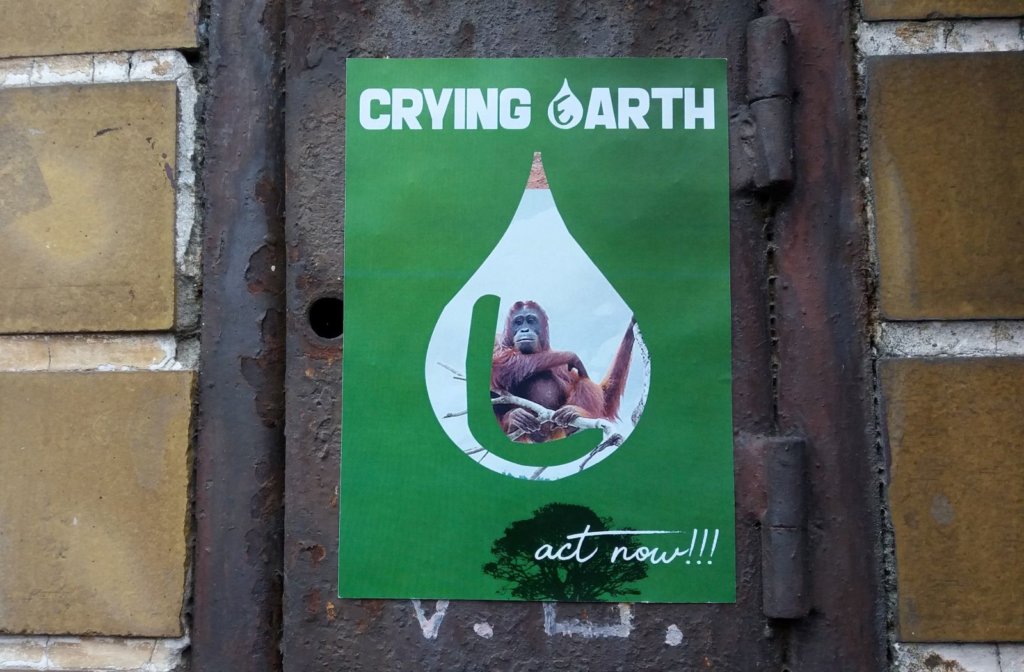I realize Juneteenth has come and gone but I keep thinking about an article I read by Robin Washington where he said Juneteenth has been whitewashed. The tale we’ve been told is Union soldiers arrived in Galveston, Texas, on June 19, 1865 to inform enslaved African Americans they were free. As if they didn’t already know. However, historian Gregory P. Downs has firsthand accounts from people demonstrating they did know. Galveston’s Blacks knew they were free and so did their slaveholders, who nonetheless kept them in bondage using brute force.
That means General Gordon Granger didn’t read off from a scroll and let slaves know they were liberated. No, Granger and his soldiers let the slaveholders know the slaves were liberated – at the barrel of a gun. They used force to say, “Let these people go.”
One of the reasons this article has stuck with me is because it illustrates what motivates people to change. So often I think we as a society want to believe that if people only knew the truth, they would change out of the goodness of their hearts. If people only knew that by purchasing products made with palm oil, such as shampoo, cookies, peanut butter, microwave dinners, and more, they are contributing to the extinction of orangutans, they’d stop. (Side note: Palm oil has many names like “stearic acid” and “sodium lauryl sulphate” so it could be hiding in your products and you wouldn’t know.) And it’s true that sometimes informing people does move them enough to change their behavior.

Will you help the orangutans? Photo by Marija Zaric on Unsplash
For instance, a friend of mine became vegan after watching a couple of documentaries. Up until that point, she didn’t put it together cows are raped and separated from their young in order to produce milk. She didn’t think about how cows, pigs, and chickens have personalities and consciousness like her dog does. She didn’t know the animals she ate screamed out in pain as they were slaughtered. But when she learned more, she changed her eating habits. However, not everyone is like my friend.
Some people know the truth and are still unwilling to change because it’s too hard, too complicated, too whatever. Some people, like the Civil War era Galveston slaveholders, will maintain the status quo until someone else forces them to change.
I think that’s why my spiritual teacher is not a pacifist. He says, “In all actions of life whether small or big, the unit mind progresses by winning over the opposing trends. Life develops through the medium of force.” Later on, he says, “In the absence of the ability to resist evil and also in the absence of an effort to acquire such ability, declaring oneself to be nonviolent with the purpose of not admitting all these weaknesses before the opponent may serve a political end, but it will not protect the sanctity of righteousness.”
My spiritual teacher cares about protecting the sanctity of righteousness, about making life better for everyone, and so do I. Does that happen sometimes through petitions, boycotts, and protests? Yes, absolutely. But sometimes that also happens at the barrel of a gun and I think it’s important for us to recognize that. I’m not encouraging everyone to go out and buy a gun, rather I’m saying force has its place in the world, if it’s used wisely and used for the benefit of all.
I dream of a world where we understand what motivates people to change. A world where we recognize sometimes learning the truth is not enough. A world where we realize force has its place in society and sometimes it’s necessary to employ force in order to create a world we wish to see.
Another world is not only possible, it’s probable.
June 21 and 22 are Amazon Prime days so I wanted to take a minute to talk about the reality of this company and capitalism in general.
Earlier this month, the New York Times came out with an article titled “The Amazon Customers Don’t See.” It’s quite long so I won’t detail the intricacies of the article but instead highlight a few aspects. First off, Amazon measures the time each employee spends off task at its warehouses, meaning every bathroom break is accounted for. If a person spends too long in the bathroom, they can be, and have been, fired.
One employee wrote on the internal feedback board, “It is very important that area managers understand that associates are more than just numbers. We are human beings. We are not tools used to make their daily/weekly goals and rates.”
However, Amazon warehouse employees are not treated like human beings, which is reflected in the company’s turnover rates. From July to October 2020 alone, Amazon hired 350,000 new workers, which is more than the population of St. Louis. Many recruits were hired through computer screening with little conversation or vetting. They only lasted a few days or weeks. Amazon’s turnover rate is roughly 150% a year, which is almost double that of the retail and logistics industries, according to the Times.

I urge you not to support this company. Photo by Christian Wiediger on Unsplash
Some more numbers for you: In 2019, the company hired more than 770,000 hourly workers, even though Amazon, including corporate staff, grew by just 150,000 that year. That means the equivalent of Amazon’s entire work force, roughly 650,000 people at the start of the year, left and were replaced that year. If Amazon is churning through its entire work force once or twice a year, it would need to have eight, nine, 10 million people apply each year, which is about 5% of the entire American work force. Five percent of the ENTIRE American work force.
The high turnover is built in to Amazon’s bones as Jeff Bezos said he didn’t want hourly workers to stick around for long because he viewed a large, disgruntled work force as a threat. Yeah, because then they might start asking for stuff like higher pay. . .
Also, let’s talk about racism. Black associates were almost 50% more likely to be fired than their White peers. In Amazon’s warehouse, more than 60% are Black or Latino whereas more than 70% of managers are White or Asian. So not only is Amazon burning through workers, it’s also perpetuating racism within its ranks.
Amazon is a prime (ha!) example of capitalism at its worst. Not only is Amazon exploitative, it plays to the worst part of our humanity – our desire for convenience no matter the cost. Bezos said people are inherently lazy and our nature as humans is to expend as little energy as possible to get what we want or need. He’s right, which is why Amazon sales exploded during the pandemic and the company continues to grow.
But again, I ask, what price are we paying for this convenience? We’re destroying the planet and treating people like machines. We’re supporting a company that appeals to our basest instincts and perpetuates what many are so actively fighting to change, i.e., racism. If you care about small businesses, workers’ rights, human rights, or the planet, you cannot actively support Amazon. And look, I know there are some products only Amazon sells – a “perfect” boycott is likely unachievable, but can you buy less from them? Even a little less? I know it’s inconvenient, but perhaps the price is worth it.
I dream of a world where we support our fellow human beings. A world where we demand people are treated with the respect and care they deserve. A world where we put our money where our mouths are when it comes to our values. A world where we understand sometimes the price of convenience is too high to pay.
Another world is not only possible, it’s probable.
In my 20s, I was enthralled by the Law of Attraction. During that time, the movie The Secret came out, which popularized the subject. I found the narrative so compelling – your mind is powerful, like attracts like, etc. Hearing story after story of people who were able to walk again after a doctor told them they wouldn’t, or how they wrote themselves a check for $1 million and were finally able to cash it all because they visualized those outcomes, was alluring. However, the Law of Attraction fell out of favor with me when it didn’t bring me the man of my dreams and also when I realized in addition to the Law of Attraction, there’s the Law of Karma.
The Law of Karma trumps the Law of Attraction every time because you cannot escape the consequences for your actions no matter how positive you are. And according to my spiritual philosophy, some of those consequences can play out over lifetimes. I no longer focus so much on what my little ego wants because I find it’s better to align my will with God’s will. Things always work out better when I do, and at the same time, I also know my mind is powerful. What and how I think makes a difference.

This picture will make sense later. Photo by Jeffrey Eisen on Unsplash
For instance, once when I was in college I slept in a tent with a friend and while we were out and about, it started to rain. My friend fretted about our possessions getting wet, absolutely certain the rain would seep into our tent. I kept telling her, “I’m sure it’s fine.” Do you know what happened when we got back to the tent? Her belongings were wet while my belongings were dry. I mean honestly, you can’t make this stuff up.
I mention this because I’m again reminded how an optimistic attitude can make a difference, not only in how we feel, but also how we experience the world. What if we believed things would work out? That we’d be OK? What if we were motivated by hope instead of fear? What if we trained our minds to ferret out the good things instead of the bad?
I have another story for you. One day back in 2015, I rode the bus and while looking out the window noticed the barest glimmer of a rainbow, which I tried to capture on my phone. In my excitement, I started texting everyone and my mother, especially when the bus crested a hill and I noticed the rainbow ringed the sun. It was a sight to behold. In contrast, the two women sitting in front of me on the bus didn’t notice a thing. They were caught up in complaining about their health problems and various other troubles. Here I was having a transcendent moment, marveling at the beauty of the world, and in the same physical space, the women in front of me were not.
What are we noticing? What are we focusing on? It matters. Living in a perpetual state of pessimism sucks so why not instead notice the rainbows?
I dream of a world where we recognize the importance of both the Law of Attraction and the Law of Karma. A world where we place each in their proper proportion. A world where we cultivate optimism because we recognize optimism can make our lives more enjoyable. A world where we do our best to notice life’s rainbows.
Another world is not only possible, it’s probable.
Lately I keep thinking about the joy in small pleasures. Over Memorial Day Weekend, I felt some FOMO (“fear of missing out” for those of you unfamiliar with the acronym) because other people posted pictures of themselves at the beach, or taking a long hike, or chilling in someone’s backyard. I didn’t do any of those things. I was housesitting for some friends and swayed in a hammock while reading a good book. I picked strawberries straight from the plant and plucked snap peas off the vine.
Similarly, this past weekend I plopped blueberries directly into my mouth after pulling them from the bush. I had dinner with six adults and two kids indoors, without masks, for the first time since February 2020. I’m not ashamed to admit I felt moved by the experience.
For the past year and some change, I haven’t done any of the things I mentioned above because I don’t own a hammock, or blueberry bushes, or strawberry plants. I haven’t dined with a large group of friends because it was too challenging to maneuver safely and they didn’t feel comfortable putting themselves at risk without being vaccinated.

I think hammock time is my favorite time. Photo by 🇸🇮 Janko Ferlič on Unsplash
Coming out of this pandemic, I’m treasuring those small pleasures: a warm breeze, fresh fruit and vegetables, dinner with friends. None of the things I mentioned are big affairs like a birth, wedding, graduation, or heck, even a vacation. They’re mundane and it’s easy for me to forget how much joy I derive from them.
I forget it’s the small things, the pedestrian things that can also fill my heart to bursting. It’s not always the grand adventures or the big events that move me the most. Coming out of this pandemic has shown me that. It reminds me of Mary Oliver’s famous poem “The Summer Day.” She writes:
Who made the world?
Who made the swan, and the black bear?
Who made the grasshopper?
This grasshopper, I mean—
the one who has flung herself out of the grass,
the one who is eating sugar out of my hand,
who is moving her jaws back and forth instead of up and down—
who is gazing around with her enormous and complicated eyes.
Now she lifts her pale forearms and thoroughly washes her face.
Now she snaps her wings open, and floats away.
I don’t know exactly what a prayer is.
I do know how to pay attention, how to fall down
into the grass, how to kneel down in the grass,
how to be idle and blessed, how to stroll through the fields,
which is what I have been doing all day.
Tell me, what else should I have done?
Doesn’t everything die at last, and too soon?
Tell me, what is it you plan to do
with your one wild and precious life?
I know I’m often focused on the big things but maybe I can take a page from Mary Oliver’s book and remind myself my wild and precious life includes not only the clamor and the clangor of big events but also the quiet chirp of crickets and laughter among friends.
I dream of a world where we savor the simple pleasures. A world where we recognize the joy in the mundane. A world where we remember happiness can be found not only in winning an award or manifesting our dreams, but also in hugging a dear friend and playing with a small child.
Another world is not only possible, it’s probable.